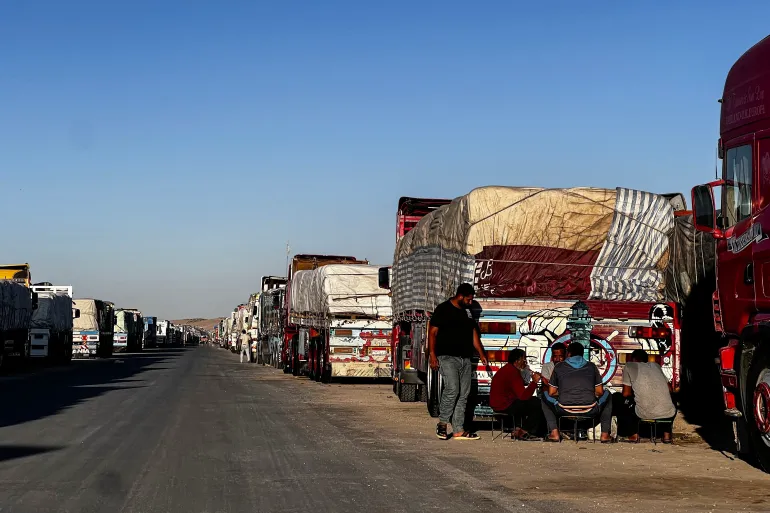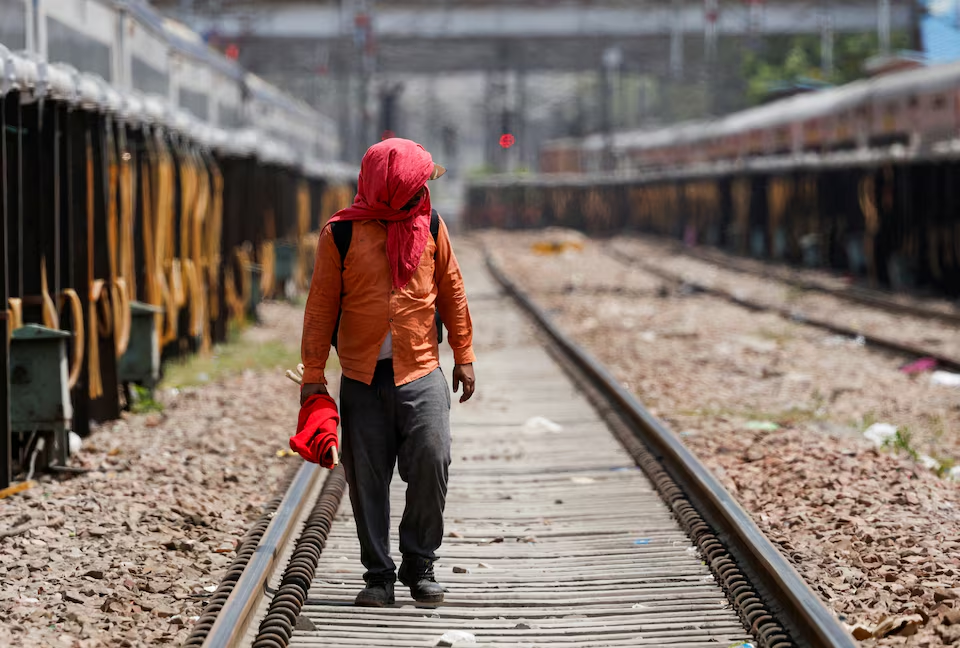In a stark illustration of the accelerating humanitarian catastrophe in Gaza, Egyptian authorities have reportedly dumped nearly 40 trucks of expired food aid near the Rafah border after months of deadlock. The aid, which included essential staples such as milk, rice, dates, and flour, had been held up since February due to Israel’s continued blockade and was left to spoil under extreme heat, rendering it unsafe for consumption.
The discarded supplies were originally destined for Gaza’s civilians, millions of whom remain displaced amid a worsening crisis. The trucks, stranded in the border zone for months, were never permitted to cross into Gaza. Egyptian drivers, stuck for extended periods, ultimately witnessed the goods rot—an outcome that reflects what humanitarian agencies describe as an alarming failure of coordination and access.
The blockade, already tight, was significantly intensified following Israel’s offensive into Rafah in March 2025. That operation further restricted humanitarian entry into Gaza and severely hindered international relief work. According to aid workers, the consequences have been disastrous. Looting incidents, reportedly involving armed groups within Gaza, have further disrupted aid distribution, with the World Food Programme (WFP) citing multiple cases in recent weeks.
Amid these complications, the United Nations issued its most dire warning to date: Gaza is on the verge of famine. According to UN officials, the territory is now experiencing the worst humanitarian conditions in the last 19 months, with near-total food insecurity in many areas.
The aid debacle at the Rafah crossing also places renewed scrutiny on U.S.-backed organizations operating in the conflict zone. One such group, the Gaza Humanitarian Foundation (GHF), has drawn sharp criticism from international NGOs over alleged lack of neutrality. GHF has reportedly been excluded from several coordination meetings due to concerns over its political affiliations and operational transparency. Critics argue that such politicization of aid delivery undermines broader humanitarian goals.
Since the war began on October 7, 2023, over 54,000 Palestinians have been killed, according to Gaza’s Health Ministry. Infrastructure has been decimated, hospitals are collapsing, and civilians face increasing desperation. The limited aid that does reach the enclave barely scratches the surface of need, especially as clean water, medicine, and electricity remain largely unavailable.
Israel continues to deny that it is deliberately using starvation as a weapon of war. Officials maintain that it is Hamas that obstructs aid flows, accusing the group of hoarding or misappropriating supplies. Hamas, in turn, denies these allegations, calling them a distraction from Israel’s responsibility as the occupying power.
Meanwhile, the people of Gaza are caught in the crossfire of political blame games and logistical paralysis. Humanitarian workers describe children collapsing from hunger, entire families surviving on grass or animal feed, and growing reports of waterborne diseases due to unsanitary conditions.
The dumping of expired food aid at Rafah stands as a symbolic and literal waste — not only of supplies but of time, trust, and international cooperation. As world leaders issue statements and organizations continue their appeals, the ground reality remains unchanged: civilians in Gaza are suffering, and the systems meant to save them are failing.
With no comprehensive ceasefire or humanitarian corridor in place, and with border crossings like Rafah and Kerem Shalom intermittently closed or restricted, the crisis is set to deepen. Aid groups are urging immediate international intervention to secure safe, sustained, and apolitical delivery of assistance — before more lives are lost to hunger and neglect.
Source; Al Jazeera

![]A view shows the Microsoft logo on the day of the Hannover Messe, one of the world's largest industrial trade fairs, in Hanover, Germany, March 31, 2025](https://theworldstandard.org/wp-content/uploads/2025/04/microsoft.avif)

